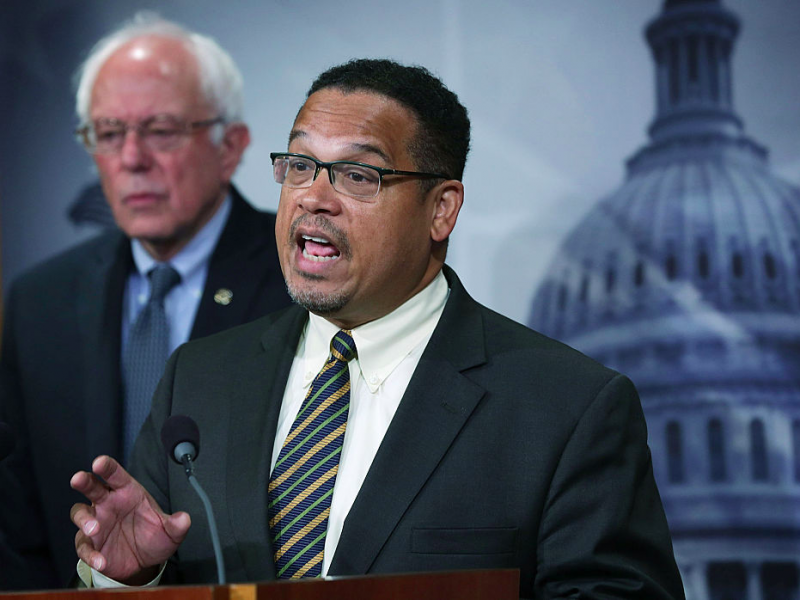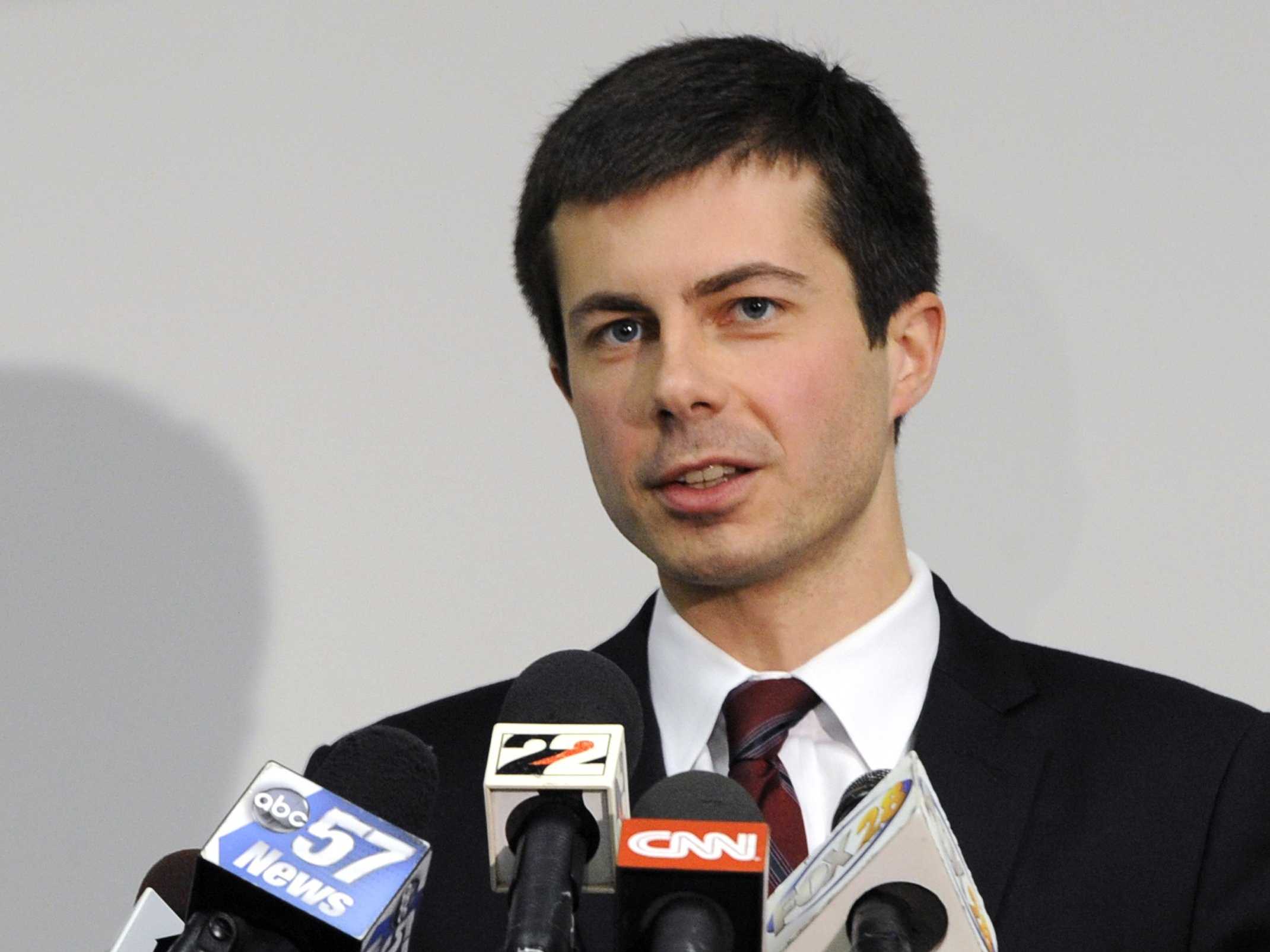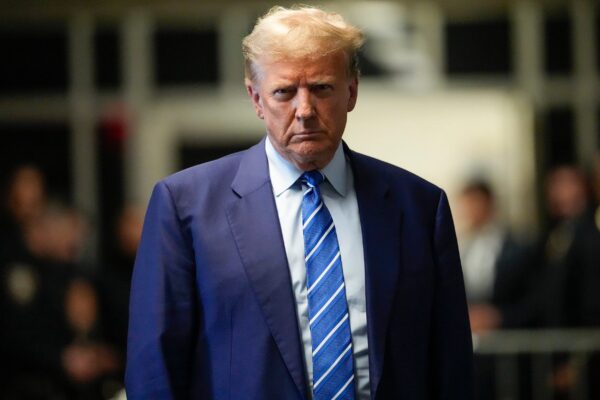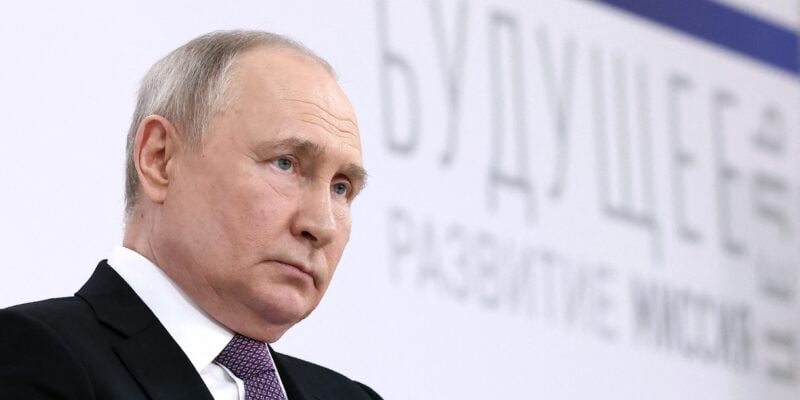Some Democrats argued after President-elect Donald Trump’s upset win that the party needs to reconnect with the working-class voters who once identified with the party’s emphasis on strong pro-union, worker protections.
Others called the strategy a step backward, contending that while white working-class voters propelled Trump to victory, appealing to the constituency isn’t a long-term solution to the party’s 2016 failure.
Peter Buttigieg, the mayor of South Bend, Indiana, and a dark-horse entrant into the race for Democratic National Committee chair, told Business Insider that this dichotomy presents a false choice for the party.
“We need to have a strong economic message and always have that at the heart of what we talk about,” Buttigieg said in an interview last week. “What I want to make clear, though, is that that’s not to say we’re speaking to one constituency and abandoning another.”
Buttigieg said promoting issues like “economic fairness” and voting rights should appeal to both the white working-class and minority constituents.
"We need to remember that, done right, the right kind of messages are unifying, both within our coalition and when it comes to broadening our coalition," he said.
The mayor's bid could shake up the DNC race, set to be decided by the 447 voting members at the party's winter meeting in Atlanta in late February.
So far, the race has largely been viewed as a contest between outgoing Secretary of the Department of Labor Tom Perez and Rep. Keith Ellison, a Minnesota congressman who garnered endorsements from high-profile Democrats like Senators Bernie Sanders, Elizabeth Warren, and Chuck Schumer. Idaho Democratic party leader Sally Boyton Brown, New Hampshire party leader Raymond Buckley, and South Carolina chair Jamie Harrison are also seeking the job.
Indeed, some Democrats have lamented that the DNC race has been viewed as a rehash of the Democratic primary.
Ellison, a longtime activist with ties to the party's progressive base, emerged as one of Sanders' most high-profile supporters during the 2016 presidential primary.
The perceived pick for many former Obama administration officials, Perez stumped vigorously for Hillary Clinton, whose team likely planned to appoint him as DNC chair following her victory, according to Axios' Mike Allen.
For his part, Buttigieg dismissed both candidates' characterizations, arguing that the differences between candidates weren't particularly stark.
"The proxy characterization - I think it's a little unfair to some of the candidates, but I do think that it's there, and I think it's bad for business. We can't be seen as trapped in that kind of fight," Buttigieg said of the 2016 primary comparison.
He added: "Everyone in this race is progressive, everyone wants to be chair, and wants to be chair in order to defend progressive values. And so we've got a way to transcend that divide. We're always going to be a party just like the other side with people with some diversity of opinion. But we've got to keep it together."
The mayor - a Harvard and Oxford graduate and US Navy Reserve officer - told Business Insider that party members he talked to urged him to run, claiming he "found that there's an appetite out there for something that hadn't yet been presented in the candidacies. An appetite for a conversation that is more driven by the states, driven by the local perspective, driven by our values."

Buttigieg's bid is viewed by some observers as a long shot, partially because of the 34-year-old's relatively low national profile, outside several fawning profiles in The New York Times and The Washington Post, which emphasize his impressive biography, including his identity as one of the Midwest's only young and gay mayors.
Unlike Ellison and Perez - both of whom are national politicians who served as major surrogates during the 2016 presidential election - it's unclear where Buttigieg stands on issues that have divided the party, such as trade (though the chair primarily dictates party strategy, not policy).
While Perez has made protecting voting rights a central part of his pitch, and Ellison has hammered home his connection to grassroots activists, the mayor's relatively lean website does not delve into specifics of his proposed strategy, though he's promised to roll out detailed proposals in the weeks leading up to the race.
Buttigieg's existing proposals have been fairly broad.
He wants to organize the DNC to avoid the appearance of impropriety, promising to roll out specifics to ensure that that fairness and neutrality in the primary process are "beyond reproach." He argued that state parties should be given more money to hire their own staff, rather than delegating that power to Washington, and said that Democrats need to think of campaigns beyond simply building a field operation and buying TV ads.
Much of the mayor's pitch to voting members - most of whom hail from state and local Democratic parties - is a promise to empower state and local parties.
Buttigieg argued that Democrats "would be in trouble" even if Clinton had won, because state and federal congressional losses have decimated the party's ability to enact serious legislation.
"If you are just focusing on the White House, even when you get the White House, you're going to have a lot of problems if the other party is dominating the states and Congress," Buttigieg said.
"Look at the monstrous obstructions to getting anything done, even while we had a lock on the White House for eight years. And in the event that we don't get the White House, then you're left with nothing. And that's part of how the party now is finding ourselves, at the lowest level of influence we've had in nearly a century."
He also laid out a rough plan for how he'd tackle the DNC's budget.
While conquering the organization's postelection debt would be an early priority, Buttigieg told Business Insider that he would focus on pumping funding into state and local partnership programs, and he promised to perform an internal audit on past spending. He also promised to "invest more directly in local races, even bench-building races where the odds are long."
And while the mayor did not embrace Ellison's proposed ban on accepting donations from lobbyists, saying it's "not where the conversation needs to go," he argued that the DNC needs to expand the donor base to draw from the small-money donors that propelled Sanders' candidacy, as well as local fundraising networks harnessed by mayoral candidates that Buttigieg claimed are not often tapped into by the national party.
Buttigieg, who doesn't have the national communications experience of the other candidates, said if Democrats maintained "a laser-like focus on the actual lives of actual people" when crafting their message to voters, the party could outflank Trump.
"If all we talk about is him, then people at home - my neighbors - are going to say, 'Trump is talking about himself, Democrats are talking about Trump, who is talking about me?'" Buttigieg said.
"We need to not get trapped in every shiny object or trapped in paying attention to every shiny object that gets thrown out, because he is very good at distraction, and he has a peculiar genius in allocating blame," Buttigieg said. "Which means even when his administration fails the American people, which I think will happen in many different ways, that won't have political consequences on its own. Not without our help."











